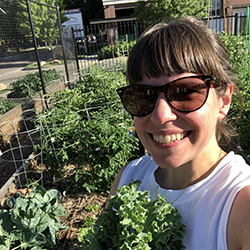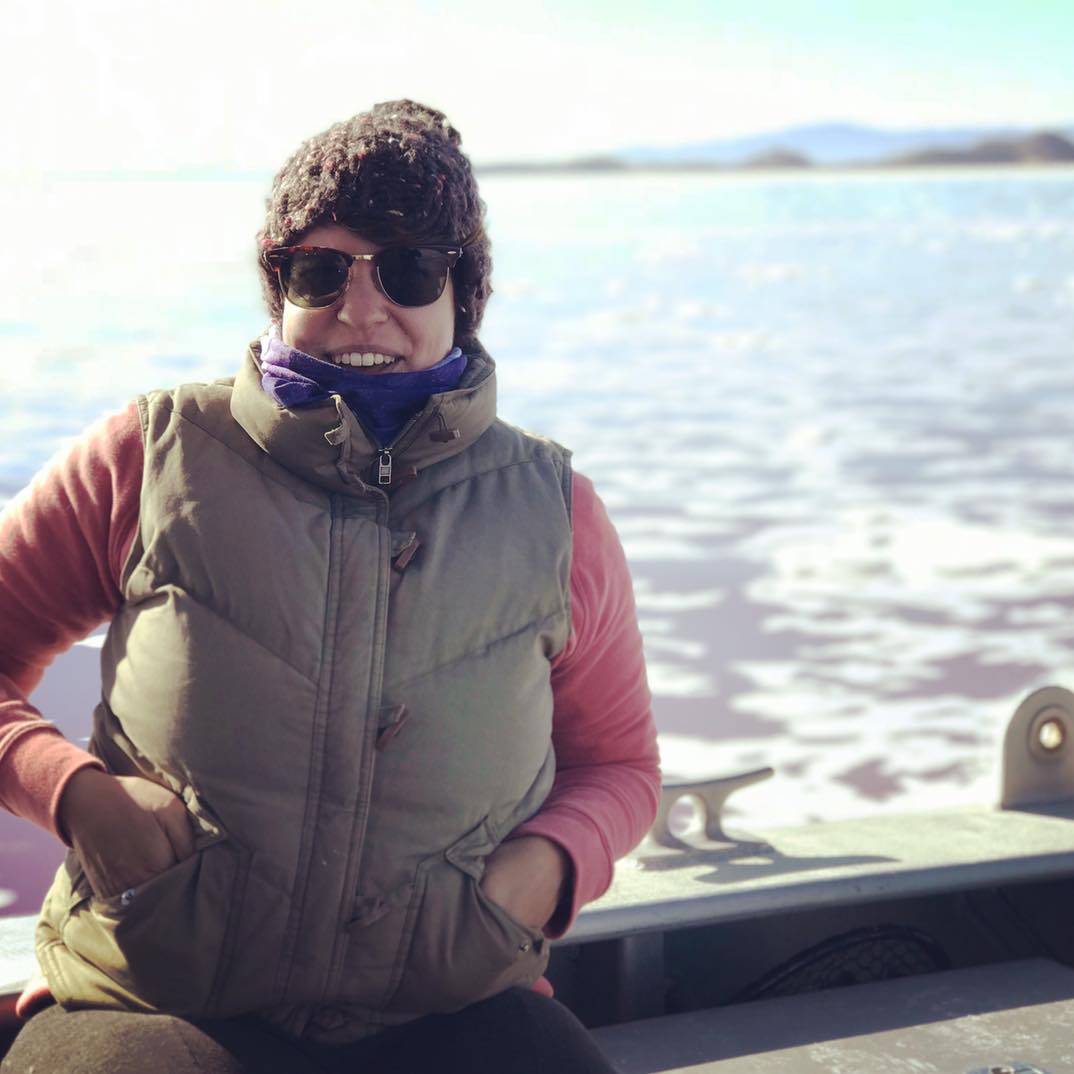Alumni spotlight: Alex Porpora
Alex Porpora graduated from the Environmental Humanities Program in 2011. She’s the Executive Director of USEE, the Utah Society for Environmental Education. After a pandemic year of both virtual and outdoors learning activities, she is working with multiple stakeholders to create an environmental literacy plan for Utah. She was kind enough to answer a few questions that I sent her earlier this month.
CP: How long you have been Director of USEE and why USEE? 
AP: I have served as USEE's Executive Director since March of 2018. When I moved to Utah in 2009 for the Environmental Humanities Master's program, I accepted a position as an outreach educator with the Loveland Living Planet Aquarium. In this role, I became more actively involved in Utah's environmental education and environmental nonprofit community. I got acquainted with USEE when I was enrolled in an Environmental Education course through the Parks, Recreation, and Tourism Department.
Connecting with USEE helped me to build my skills as an educator through professional development courses and their annual conference. It also connected me with other professionals and organizations to help me continue my career. USEE was an important part of my professional growth. When the opportunity arose to lead USEE I was thrilled. I can say that it's an honor to be at the helm of this organization and to use my skills to help strengthen our Utah EE community. USEE plays an important role in Utah and also works collaboratively with other North American Association for Environmental Education Affiliates on national efforts. Right now, we're currently accepting nominations for Utah Environmental Education Awards through July 1.
CP: What are you most proud of about the work?
AP: I will be really frank here! When I started at USEE, the organization was struggling financially. I am proud of the work that I have done to bring financial stability to our organization and to ensure that we weathered 2020. Throughout the pandemic, we provided space and support for educators to workshop ideas and navigate the challenges that were presented. We also worked with our national partners to provide guidance to schools and organizations around outdoor classrooms and learning. In Utah, this manifested as a grant program through the Governor's Office of Outdoor Recreation. We are currently in the process of developing an Environmental Literacy Plan for Utah - a multi-year effort that requires the input of numerous stakeholders from across the state. As a part of this effort, we are also ensuring that equity is centered in the ELP and at our organization. To say that all of this has been a lot of hard work is a bit of an understatement, but it has been rewarding and a true joy to see these efforts come to fruition.
CP: Can you draw any parallels between your time in Environmental Humanities at the
U and the work you're doing now? 
AP: My participation in the Environmental Humanities program helped me cultivate my writing and communication skills. In the course of my work, I write grant proposals, op-eds, and guidance documents, just to name a few. I still teach professional development workshops for educators and frequently speak at conferences and events. The ability to tell a compelling story (especially with a limited amount of space or time) is an invaluable skill. EH also helped me to build a deeper relationship to place and this is something that I frequently utilize in communications. Finally, while it is often easy to make a connection between environmental education and science, technology, engineering and math (STEM) skills, it is equally as important to include the humanities in our field. My background in both science and the humanities allows me to be more well-rounded and to make a stronger case for the importance of environmental education.
